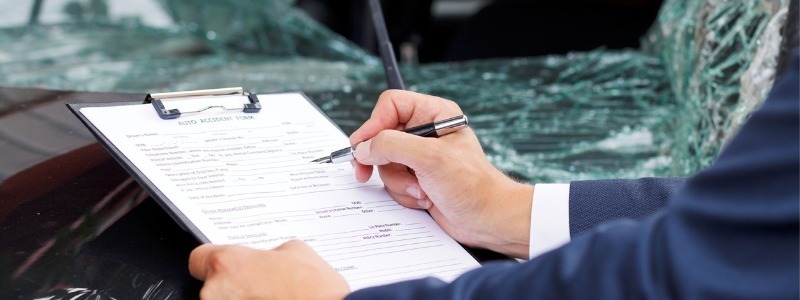What Happens When a Car Accident Claim Exceeds Insurance Limits in Florida

When involved in a car accident in Florida, one of the critical factors to consider is the insurance coverage. Insurance policies are designed to cover various damages and liabilities, but they come with limits. In cases where a claim exceeds these limits, the situation can become complex and financially challenging for the parties involved. This article explores what happens when a car accident claim exceeds insurance limits in Florida, providing a comprehensive understanding of the legal implications, potential consequences, and available options.
Understanding Florida’s Auto Insurance Requirements
Florida operates under a “no-fault” insurance system, meaning that each driver’s insurance pays for their own medical expenses and lost wages, regardless of who caused the accident. The state mandates specific minimum insurance coverage that drivers must carry:
- Personal Injury Protection (PIP): Florida requires drivers to carry a minimum of $10,000 in PIP coverage, which covers medical expenses and lost wages.
- Property Damage Liability (PDL): Drivers must also carry at least $10,000 in PDL coverage, which covers damage to another person’s property in an accident.
While these minimums are required, they may not be sufficient in severe accidents, especially when significant injuries or extensive property damage are involved. Many drivers opt for additional coverage, such as Bodily Injury Liability (BIL), which covers injuries to others when the policyholder is at fault. However, even with additional coverage, limits may still be exceeded in a serious accident.
What Happens When Insurance Limits Are Exceeded?
When the damages from a car accident surpass the insurance limits of the at-fault driver, several potential outcomes can occur:
- Personal Financial Liability: If the at-fault driver’s insurance coverage is not enough to cover the damages, they may be held personally responsible for the excess amount. This could lead to garnished wages, liens on property, or other legal actions to recover the remaining balance.
- Uninsured/Underinsured Motorist Coverage (UM/UIM): If the victim has UM/UIM coverage, their insurance policy may cover the difference between the at-fault driver’s insurance limit and the total damages. This coverage is optional in Florida but highly recommended for additional protection.
- Civil Lawsuits: The injured party may file a lawsuit against the at-fault driver to recover the excess damages. If successful, the court may award a judgment that the at-fault driver is obligated to pay. However, collecting on such judgments can be challenging, particularly if the at-fault driver has limited financial resources.
- Settlement Negotiations: In some cases, both parties may choose to negotiate a settlement out of court. This can involve the at-fault driver agreeing to a payment plan or offering assets in lieu of cash to satisfy the remaining debt.
- Bankruptcy: If the financial burden is too great, the at-fault driver may consider filing for bankruptcy. However, it’s important to note that not all debts related to car accidents are dischargeable in bankruptcy, particularly if the accident involved DUI or other reckless behavior.
Legal Implications of Exceeding Insurance Limits
Exceeding insurance limits in a car accident claim can have serious legal implications. Florida law allows injured parties to pursue the at-fault driver for the remaining damages, but this process is often complex and requires legal expertise. The injured party must prove the extent of the damages and that the at-fault driver’s insurance was insufficient.
Additionally, the at-fault driver’s assets may be at risk. In Florida, certain assets, such as a primary residence, are protected under the state’s homestead exemption. However, other assets, such as savings accounts, investments, and non-homestead property, may be vulnerable to collection efforts.
The legal process can also be time-consuming and costly. Both parties may incur significant legal fees, and the outcome is not guaranteed. Even if a judgment is obtained, collecting on it can be difficult, particularly if the at-fault driver has limited assets or income.
The Role of Umbrella Insurance Policies
An umbrella insurance policy is an additional layer of liability coverage that goes beyond the limits of standard auto insurance. For drivers concerned about the possibility of a claim exceeding their insurance limits, an umbrella policy can provide significant peace of mind.
Umbrella policies typically provide coverage in increments of $1 million and can cover various liabilities, including auto accidents, property damage, and personal liability claims. In the event of a severe accident, the umbrella policy would kick in once the limits of the underlying auto insurance policy are reached, covering the remaining damages up to the policy’s limits.
For example, if an at-fault driver has $250,000 in BIL coverage and an umbrella policy of $1 million, the total coverage available would be $1.25 million. If the accident results in $1 million in damages, the umbrella policy would cover the $750,000 that exceeds the auto insurance limit.
Steps to Take If Your Claim Exceeds Insurance Limits
If you are involved in an accident and your claim exceeds the at-fault driver’s insurance limits, it’s crucial to take certain steps to protect your rights and maximize your recovery:
- Consult with an Attorney: An experienced personal injury attorney can evaluate your case, advise you on your options, and represent you in negotiations or court proceedings. They can also help determine if the at-fault driver has additional assets or insurance coverage that may be available.
- File a UM/UIM Claim: If you have UM/UIM coverage, file a claim with your insurance company to cover the remaining damages. Your attorney can assist with this process to ensure you receive the maximum compensation available.
- Explore Settlement Options: In some cases, it may be beneficial to negotiate a settlement with the at-fault driver. An attorney can help facilitate these negotiations and ensure that your interests are protected.
- Consider a Lawsuit: If a settlement cannot be reached, filing a lawsuit may be necessary. Your attorney can guide you through the legal process, from filing the complaint to presenting your case in court.
- Evaluate Financial Impact: If you are the at-fault driver and your insurance limits are exceeded, it’s important to assess the potential financial impact. Consult with a financial advisor or attorney to explore options for protecting your assets and managing any judgments or settlements.
The Importance of Adequate Insurance Coverage
One of the key takeaways from this discussion is the importance of carrying adequate insurance coverage. While Florida’s minimum insurance requirements may suffice for minor accidents, they are often insufficient for serious collisions involving significant injuries or property damage. Drivers should consider purchasing higher limits for BIL, PDL, and adding UM/UIM coverage to protect themselves from the financial risks associated with exceeding insurance limits.
Additionally, an umbrella insurance policy can provide an extra layer of protection, particularly for those with significant assets or high-risk factors. By investing in adequate insurance coverage, drivers can mitigate the financial impact of a severe accident and avoid the potential legal and financial challenges that arise when claims exceed insurance limits.
Conclusion
When a car accident claim exceeds insurance limits in Florida, the situation can become complicated and financially burdensome for all parties involved. Understanding the legal implications, potential consequences, and available options is crucial for both the at-fault driver and the injured party. By carrying adequate insurance coverage, including optional UM/UIM and umbrella policies, drivers can protect themselves from the financial risks associated with exceeding insurance limits. If you find yourself in a situation where a claim exceeds the insurance limits, seeking legal advice and exploring all available options is essential to ensure a fair and equitable resolution.



